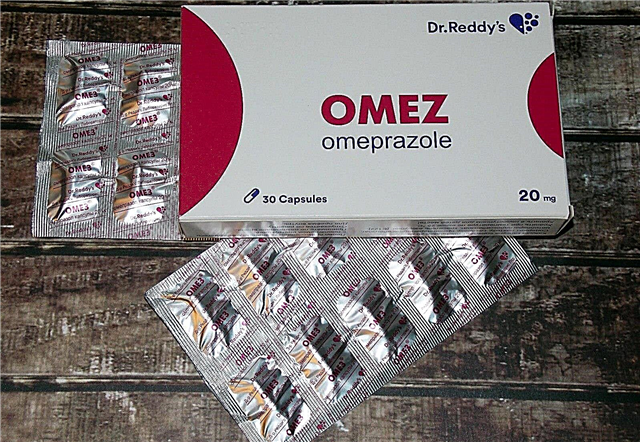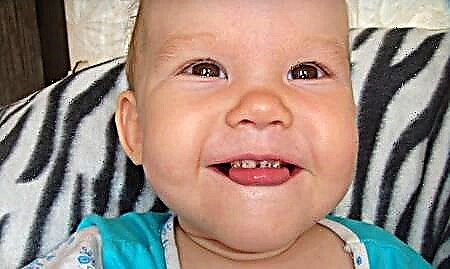Many parents begin to worry when their baby does not wake up from a loud noise, is not distracted by external stimuli during wakefulness. In most cases, this is normal and due to the peculiarities of the physiology of the little man.

Hearing test
Serious health problems can also be the cause. How many children usually have hearing problems? According to statistics, an average of 15 out of 1000 newborns have difficulty hearing the world around them. Some of the hearing damage is so severe that you have to buy a hearing aid.
In this regard, it is necessary to understand when a newborn begins to hear, and what are the physiological characteristics of hearing in a newborn.
Physiological features
When do newborns get hearing? In the first 2-3 days after birth, the baby hears almost nothing due to the presence of amniotic fluid in his inner ear. In general, the baby's ability to recognize sounds is formed during the prenatal period.
In general, the baby does not need absolute silence when falling asleep, because in the mother's tummy he constantly heard the sounds of the surrounding organs. The baby may not react to sufficiently strong monotonous noises, but sharp loud sounds can scare him.

Photo of a newborn
Important! The peculiarity that a newborn child has is that he can hear the same both during sleep and during wakefulness.
In the fourth week of life, the child becomes able to distinguish some sounds, from 9-12 weeks he begins to understand where they come from and look for the source with his eyes.
At 3 months, the baby can turn his head towards the sound and is able to recognize his mother by her voice. When he hears it, he calms down, and also knows how to understand intonation and listen to the timbre of voices of different people.
From the very first days of life, it is useful to let the baby listen to children's songs, poems, fairy tales. You can also comment on your actions. Thanks to this, the child will quickly remember the names of objects and their purpose, and also such conversations can strengthen the relationship between the child and the mother.
Age of the first sound heard
When does a child start to hear? For the first time, the baby becomes able to recognize sounds at 16-17 weeks of gestation. By the 20th week, the formation of the auditory system is completely over. From this time on, you can talk with the baby. Some mothers consider this a useless exercise, but communication in the womb helps prepare for the birth of a son or daughter.
The fetus is able to understand sounds whose volume exceeds 30 decibels. Of course, the amniotic fluid somewhat muffles these sounds, but this does not interfere with the baby.
Interesting! Best of all, the child in the prenatal period understands low sounds, in particular, male voices. Therefore, it is advisable that daddy talk to the baby.
How does a newborn react to sound?
Parents are most often worried because their reaction to what they hear is very different from that of children. This confuses them.
Is a harsh reaction normal?
If the child shudders sharply, this does not mean that something is wrong with the psyche of the baby. Moreover, this is a sign of normal hearing. Over time, the child gets used to different sources of noise. For up to two months, reactions can be somewhat convulsive, after which they become more orderly. At this stage of development, the infant can easily listen to calm speech.

Baby audio screening
A particularly violent reaction is normal when the sound is unexpectedly loud or suddenly. However, the reactions of infants differ already from the prenatal period. Some children adapt more easily to noise, others harder. Gradually, you need to accustom your baby to sounds from the very cradle. Can a newborn baby hear soft sounds? Yes, but does not respond to them.
Hearing test
How to test a baby's hearing? The first check is carried out in the maternity hospital, but not every institution has the necessary equipment for diagnosis. If the baby has not undergone such an examination, then you need to contact an ENT, otologist or audiologist. For the first time, you need to resort to the help of specialists at the age of four months, if there are any suspicions, it is better to do this earlier.
For verification, a screening test is performed. A special sensor is taken, which is inserted into the child's ear and makes sounds. This device also has a microphone that analyzes the snail's response. Next, the doctor listens to the received recording and determines if there is a hearing loss. If it turns out that yes, an additional survey is carried out.

Baby listens
Signals of varying intensity are given to the child's ear in order to determine the degree of hearing impairment. Also, the doctor may use other methods (acoustic impedance, tympanometry) to clarify the diagnosis.
Parents can also check the state of hearing, who must constantly analyze the reaction of the crumbs to the sounds of the surrounding world. Don't be afraid right away, as the infant may be focusing on something else. If the lack of reaction occurs regularly and is not associated with distraction, this may indicate problems.

The crumb plugs his ears
The parent needs to take the following test and answer some. If the answer was “yes” to everything, then most likely there are no hearing problems:
- During the first 3 weeks, does the baby flinch if he hears a loud, unexpected sound?
- When an adult starts talking loudly to a baby for up to three weeks, does she flinch?
- When the baby is one month old, can the baby turn his head at the sound?
- Is there a reaction of a three-month-old baby to her mother's voice?
- Is a four-month-old baby capable of turning its head towards the rattle?
- Does a 2-4 month old baby begin to hum?
- Does a 5 month old baby start babbling?
- Is babbling filled with new sounds at 8-10 months of age?
- Can a baby understand certain words at 9-10 months? For example, such short expressions as mom, dad, bye, give, hello and others like that.
- Can you speak the simplest words a year?
Some of the problems described in the last few questions may not only be due to hearing impairment.
Interesting! Sight and hearing in newborns have different degrees of development. Kids can see everything in black and white at a distance of about 20-40 cm, while they hear quite well.
How hearing problems manifest
Doctors identify two forms of hearing problems: conductive and sensorineural. The former are caused by problems in the development of the outer or middle ear. As a rule, such disorders are easily treatable. For example, a child may not hear due to a sulfuric plug. This is a very common cause of impairment because the ear canal is very narrow, so the plug easily blocks the sound path.
Another special case of conductive disturbances is foreign bodies. Therefore, parents should be careful not to pick up small items for babies. Hearing problems can also begin after swimming, as well as due to otitis media and damage to the eardrum.
Sensorineural disorders are usually irreversible, since they develop as a result of hereditary diseases, infections during pregnancy, toxicosis, the use of certain types of antibiotics, trauma, prematurity, etc. Modern medicine cannot restore ear function in this case.
When to see a doctor
Whenever doubts arise, it is best to consult a doctor. If hearing impairment occurs, then timely treatment is a guarantee of a good result. Many parents are afraid to see a doctor lest they hear a bad diagnosis. Don't worry, because the news could be much better than the parent expected.
You need to see a doctor if a one-year-old child:
- Doesn't notice that someone is talking outside the field of view.
- The little one often asks again.
- The child pays excessive attention to the facial expressions of an adult.
- Turns on the TV very loudly.
- Can't hear a voice on the phone.
As a rule, the problem is solved by purchasing a quality hearing aid. The main thing here is not to waste time. The sooner it is bought, the better the child will adapt to society.
So, the answer to the question of whether newborn babies hear is clear. In the first two or three days - no. Then, if they do not respond to loud sounds, the voice of adults, this is a real problem.



